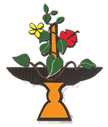Call for stricter rules on herbal goods
PETALING JAYA: Natural product researchers are urging the Health Ministry to review regulations on herbal and traditional products, saying that the current laws governing quality, safety and efficacy are inadequate.
The Malaysian Natural Products Society, comprising more than 450 natural product and herb researchers, said many products in the market were still not safe despite falling under the Control of Drugs and Cosmetics Regulations 1984.
“The efficacy of herbal products has not been included as a requirement for product registration,” society president Prof Datuk Dr Ibrahim Jantan told The Star.
He said the National Pharmaceutical Regulatory Agency’s (NPRA) safety assessment for registered herbal products are rather “simple”.
Herbal products submitted for product licensing are only tested for heavy metal and microbial contamination and screening for adulteration.
“There is no comprehensive toxicity test to evaluate the clinical safety of the products,” he said.
Dr Ibrahim also called for traditional herbal preparations, including raw herbs, to be registered under the Drug Control Authority.
The NPRA currently requires all herbal products to be registered and tested before they can be marketed.
However, it exempts traditional preparations that are not processed into forms of pharmaceutical dosage.
Dr Ibrahim said these traditional preparations must be strictly regulated to reflect current commercial practices.
He said traditionally, herbal medicine practitioners collect and mix the herbs and dispense the preparation to patients on a one-on-one basis.
However, he said this practice has been abused.
“It has gradually shifted towards profit-oriented activities, where the crude preparations are now sold as retail items in traditional medicine outlets without proper dispensing procedures.
“I believe this form of herbal preparation, especially after chronic use, contributes to a high percentage of people suffering from adverse effects, leading to internal organ damage, especially liver and kidney failure,” Dr Ibrahim said.
He echoed calls for the establishment of a national monograph and pharmacopoeia with science-based information of local and imported herbs to be used as an official reference document by regulatory bodies, practitioners and manufacturers.
He said in some countries, herbal products with traditional claims are categorised as low to medium-level claims, while products with scientific evidence are categorised as high-level claims.
There is a need for such categorisation in Malaysia to serve as product safety and efficacy guideline for consumers, manufacturers, and practitioners, he added.
“The present laws governing herbal products do not differentiate between science-based products and traditional claim products,” he said.
While there is a Malaysian Herbal Monograph detailing local herbs, Universiti Sains Malaysia pharmacologist Prof Dr Yam Mun Fei said it only provided a brief introduction of the herbs and does not go through clinical trials.
“Unfortunately, we do not have a national pharmacopoeia in Malaysia for traditional Chinese medicine,” he said.
According to International Medical University Chinese Medicine programme director Dr Wong Zhi Hang, traditional Chinese medicine practitioners abide by the internationally recognised Chinese Pharmacopoeia when providing herbal treatment.
Dr Wong said toxic herbs are used in Chinese medicine practice as medication, but it is used with strictly-controlled dosage to treat illnesses and not for health preservation.
He said Malaysia should emulate the prescriptive medicine system for herbal medicine as practised in China, Hong Kong, Taiwan and Singapore.
“They categorise the herbal medicine into normal herbs and prescriptive herbs. Toxic herbs can only be prescribed by a qualified practitioner,” he said.
The public cannot buy prescribed herbs without a doctor’s prescription and the Chinese medicine pharmacist dispensing the herbs must record the ins and outs of the dangerous herbs clearly, he said.
“The real culprit for drug-induced acute liver failure in Malaysia is most probably the unregistered, illegal products which are readily available by the roadside, pasar tani and such,” he said.
“However, it doesn’t mean all traditional medicine should be terminated, because their medicinal efficacies are still required for treating certain diseases.
“For the toxic herbs, we need stricter regulation to control its sales,” he said.
With traditional and complementary medicine not having to put up with stringent regulations and clinical standards required of pharmaceutical products, concerns are being raised about dubious herbal remedies.
The Star reported on Nov 26 that Malaysia’s RM29bil herbal industry is sadly also contributing to drug-induced liver failure.
Medical research has also linked substances found in traditional products to kidney failure, urinary tract cancer and heart complications.
Doctors as well as traditional and complementary medicine practitioners said many harmful products slipped through as the regulations did not hold traditional products to the same stringent standards as pharmaceutical products.
Source : The Star (10 Dec 2018)
- Hits: 6288
 Malaysian Natural Products Society,
Malaysian Natural Products Society,
